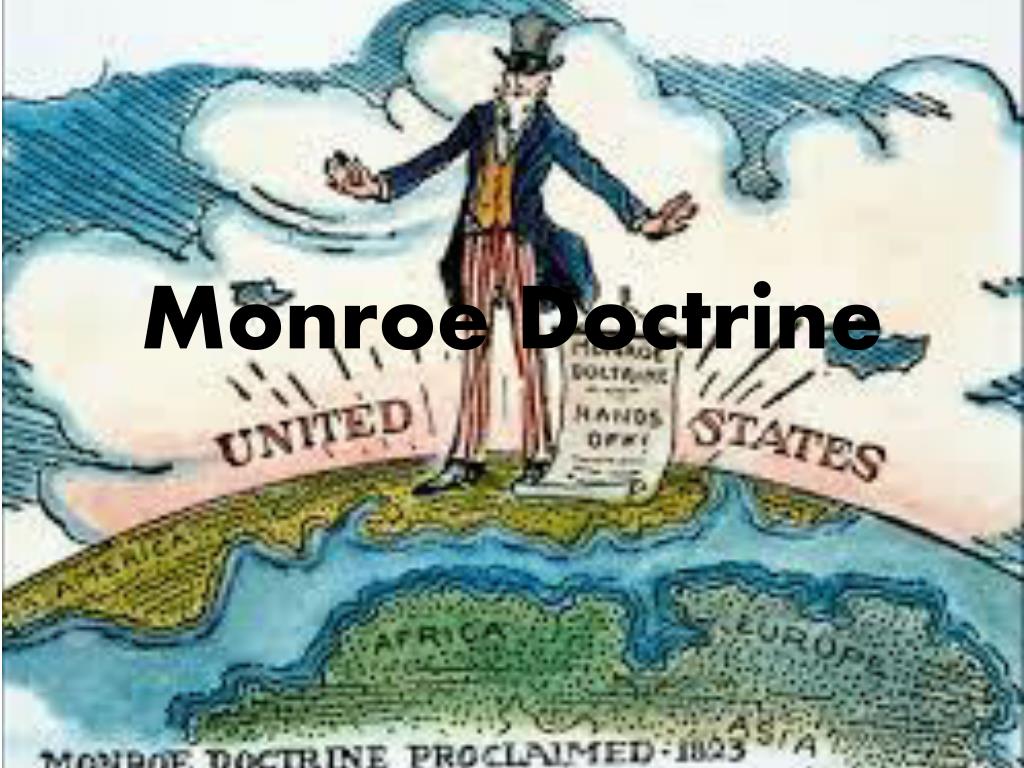
The Monroe Doctrine and the Roots of US Hegemony
David Swanson / World BEYOND War
Remarks at Cambridge, Massachusetts, November 6, 2023
(November 7, 2023) — If we think of the US arming of genocidal colonial violence in Israel as an anachronistic throwback, we’re not wrong, but there’s something we’re missing. If we want to understand why a bill to fund four wars at once is likely to find less, rather than more, opposition in the US Congress, there’s something we should understand about the past, about how we got here.
If we want to know how war has been so normalized that its byproducts can include routine mass-shootings in US public places, at least 31% of them by US military veterans, and almost all of them by people pretending to be in wars and using weapons of war, and how we have been so indoctrinated that we believe it kinder not to mention that than to try to change it, there’s a two-centuries long story we should examine.
If we want to understand why the United States has military bases encircling the globe and never fewer than a half dozen wars going, or how imperialism came to be disguised as its opposite, or how distant wars acquired the label “defensive,” or where the whole phenomenon of doctrines, including the Obama doctrine, the Trump doctrine, and the Biden doctrine comes from, it helps to go to the source.
Two hundred years ago this December 2nd, a local boy from my town in Virginia gave a speech. In the years that followed pundits and politicians took an excerpt of that speech, carved it in marble, lit it with eternal white phosphorus bombs, and prayed to it before every shareholders meeting. They named it the Monroe Doctrine. Parts of it had been brought down in stone tablets from on high in Peacefield by Secretary of State John Quincy Adams. Peace is not what it would lead to.
It created the model, used ever more frequently up to this day, of picking out the worst thing a US president has said — or rather the thing most similar to the Monroe Doctrine — and declaring it to be their doctrine. There’s nothing in US law about the presidential power to create doctrines, much less the power of newspaper columnists to do so, but here we are with a pile of them having created a supreme law framed around violence and lawlessness.
World BEYOND War Executive Director David Swanson.
Over the centuries, the Monroe Doctrine has been used to carve out exceptions to treaties that the United States was pretending to join. Eventually, the exceptions became the rule. The people who first developed the Monroe Doctrine justified imperialism to themselves with the following ideas:
- We’re opposing European imperialism, so we can’t be doing imperialism.
- Anybody who had the chance would want to be part of the United States, so we’re not forcing anything on anyone.
- These people are subhuman animals or ignorant heathen who don’t know that they want to be part of the United States, so we have to show them.
- What people? These lands are basically empty. Or, more recently: There is no such thing as the Palestinian people.
Nowadays, NATO members and partners add a few variations to that list of excuses, but much remains constant. The creation of the Monroe Doctrine involved keeping Russia out of North America. The most significant use of the Monroe Doctrine has been in the US expansion across North America. But the Doctrine easily expanded to the globe. Hostility to Russia developed almost unbroken for 200 years. And the recent history of US-Russian relations can be understood in part as involving a Russian claim to its own Monroe Doctrine and US insistence that there can be only one.
In fact, if we want to survive, there are going to have to be none. There’s going to have to be something wiser and more sustainable instead.
I don’t have time, of course, to discuss everything I discuss in the book, but the Monroe Doctrine began as a claim to the right to fight off any European extensions of power in the Western Hemisphere — combined with a US commitment to stay out of Europe (though that part has been put to rest). For many years the Monroe Doctrine served as an excuse to steal North America from Native Americans and Mexicans and (with less success) Canadians in order to protect it from Europeans.
For many years, the United States did nothing to impede European actions in Latin America. Eventually, it developed the military power to assert its dominance there publicly and privately (through renegade filibusterers declaring themselves kings in the cause of slavery), but not with the success dreamed of by some, and never in the cause of supporting republics against monarchies or dictatorships. There’s a long and brutal history of wars, coups, interference, and economic manipulation alive, and with the resistance to it very much alive, to this day.
Yet the Monroe Doctrine is little known compared to past eras. In 1923, the Monroe Doctrine turned 100 and was celebrated with a half-dollar coin. Some 10 million school children listened to the Doctrine being read and discussed, just as if it were the Declaration of Independence on the Fourth of July. It was read on the radio. It was discussed in the newspapers.
Mary Baker Eddy, founder of the Christian Science religion said, ”I believe strictly in the Monroe Doctrine, in our Constitution and in the laws of God.” Now we flip and flop between Republican Party US governments that celebrate the Monroe Doctrine and Democratic Party US governments that renounce it, while both wholeheartedly act on it, and most of the US public has never heard of it or can’t tell you what it is.

This evening, I want to focus on a part of the book I haven’t spoken about before, because it’s a different angle at trying to help people anywhere on Earth understand how the Monroe Doctrine is relevant today. What I want to do it look at some of the children and grandchildren, the doctrines that have followed in the wake of the creation of the first presidential doctrine.
Monroe’s speech itself was about global militarism in so far as it mentioned that “the usual force has been maintained in the Mediterranean Sea, the Pacific Ocean, and along the Atlantic coast, and has afforded the necessary protection to our commerce in those seas.” In 1904 President Theodore Roosevelt spoke the words that would get framed in Washington temples as “The Roosevelt Corollary to the Monroe Doctrine.”
While the Roosevelt Corollary was spoken, and made into a doctrine, and widely discussed at a time when US imperialism had moved well beyond the continental US, it was an amendment to, not a reversal of, the original Monroe Doctrine. Roosevelt spoke of launching wars and declared that, in effect, wars should be disguised as humanitarian and philanthropic enterprises. He also clearly abandoned any limitation of doctrines to the Western Hemisphere, effectively going global with the Monroe-Roosevelt Doctrine of war-making.
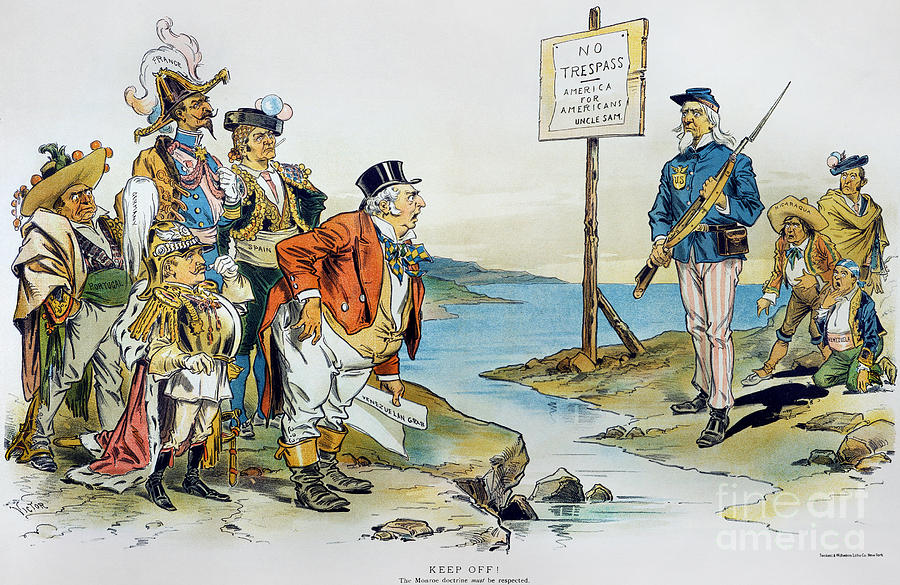
If we skip over a number of doctrines and come to those of more recent vintage, the Kennedy Doctrine is a good place to start. This doctrine is not always included in lists. When it is, it amounts to an update of the Monroe Doctrine for Latin America to involve the excluding, in particular, of the Soviet Union. This concept was cherry-picked out of President John F. Kennedy’s inaugural address, in which he called for mass-participation in governance, committed to aiding the poor of the world, and didn’t mention the Soviet Union but rather “aggression or subversion” in Latin America.
In the same speech, but apparently unworthy of doctrine status, Kennedy urged support for the United Nations, for peace, and for reconciliation with enemies, while warning of the danger posed by nuclear weapons, and stating “Let both sides, for the first time, formulate serious and precise proposals for the inspection and control of arms–and bring the absolute power to destroy other nations under the absolute control of all nations.” Kennedy said the problems to tackle were “tyranny, poverty, disease, and war itself” and addressed himself to “citizens of the world,” yet his “doctrine” is somehow an anti-Soviet Monroe Doctrine.
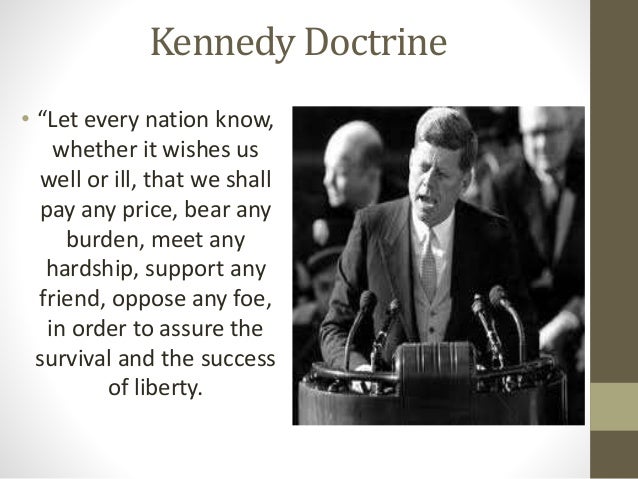
Kennedy did indeed act on such a doctrine and explicitly declare his allegiance to the original Monroe Doctrine, but if unelected people can excerpt something from an entire presidency and raise it above the Constitution, I’d rather not, with Kennedy, make it keeping the Soviets out of Latin America. I’d rather make it his entire speech for peace at American University. If we need an excuse to so change the Kennedy Doctrine, we could use the fact that the Soviet Union no longer exists.
The Johnson Doctrine is identical to the Kennedy one, and perhaps both more and less appropriately designated — less because it was already Kennedy’s, more because it was articulated by President Lyndon Johnson at the time of a US war on the Dominican Republic, and again less because the false claim to be protecting the Dominican Republic from the Soviets was not prominently used by Johnson, as he had determined that nobody was going to fall for it. Instead, Johnson principally used a false claim that US citizens were in danger in the Dominican Republic, only followed secondarily by the justification of keeping communists out of the Western Hemisphere.
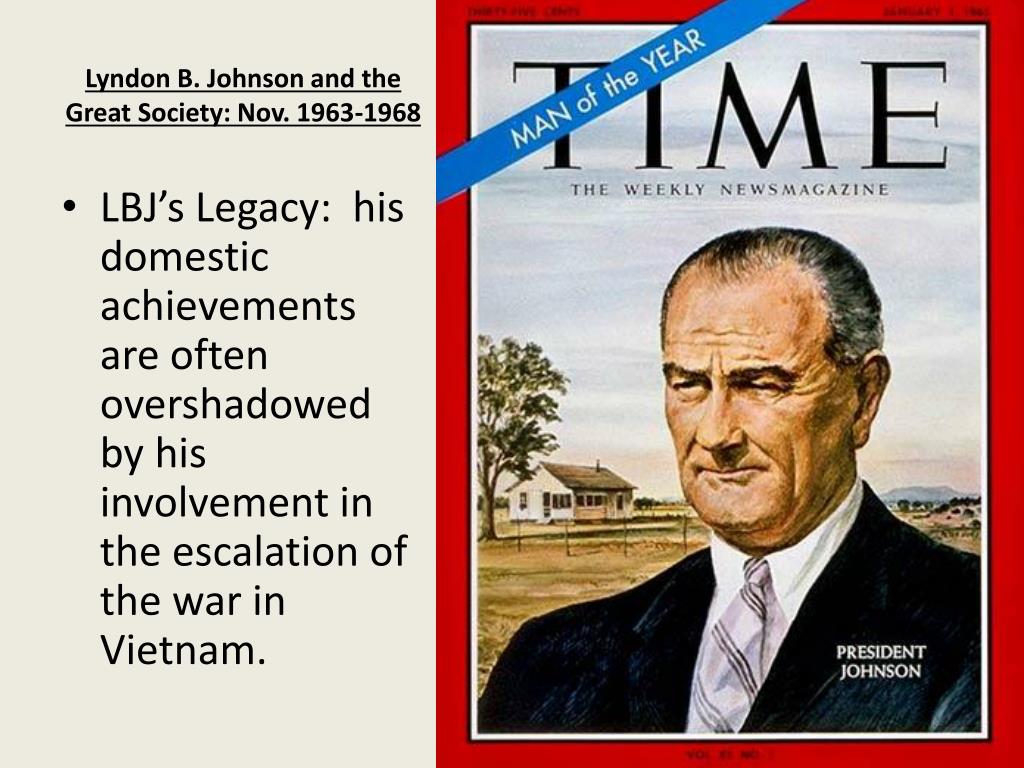
In a closed session of the Senate Foreign Relations Committee, Assistant Secretary of State Thomas Mann later explained that the US ambassador had asked the head of the Dominican military if he’d be willing to play along with the alternative lie: “All we requested was whether he would be willing to change the basis for this from one of fighting communism to one of protecting American lives.” Again, since the creation of doctrines is completely lawless, I propose the Johnson Doctrine be amended to read “Presidents who are deeply unpopular because of their evil wars should never run for reelection.”
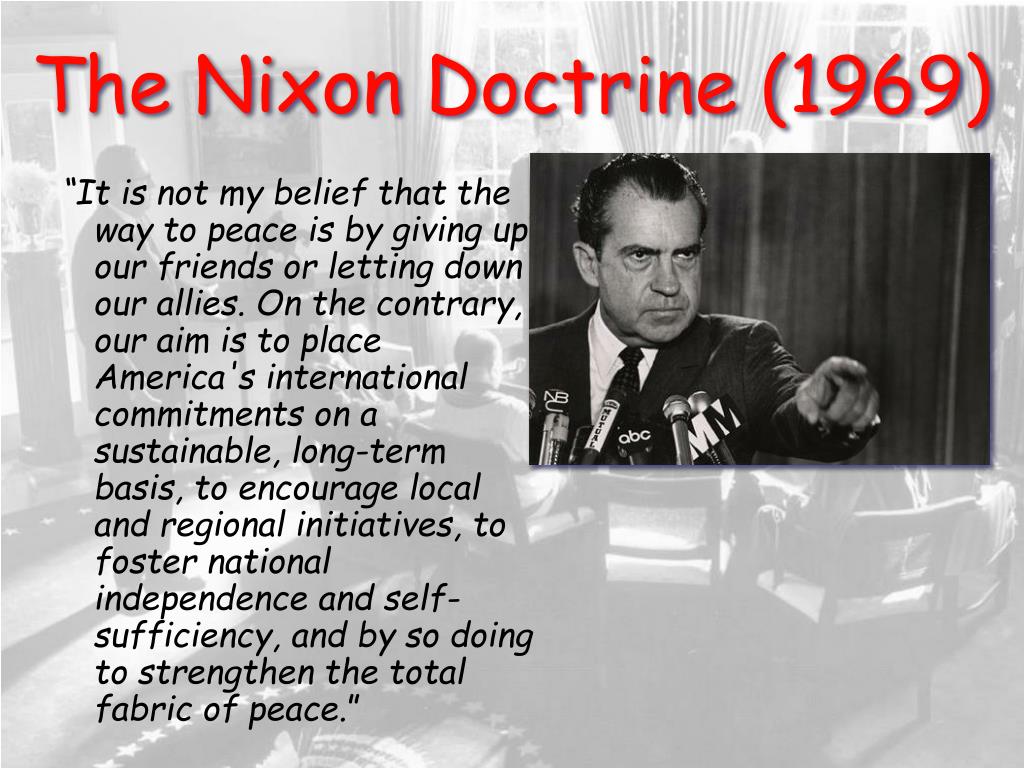
The Nixon Doctrine is as follows: “First, the United States will keep all of its treaty commitments.” Always begin with a joke, right? “Second, we shall provide a shield if a nuclear power threatens the freedom of a nation allied with us or of a nation whose survival we consider vital to our security.” So it’s about freedom or security — name a spot on Earth they won’t claim is covered by one of those.
“Third, in cases involving other types of aggression, we shall furnish military and economic assistance when requested in accordance with our treaty commitments. But we shall look to the nation directly threatened to assume the primary responsibility of providing the manpower for its defense.” This was also referred to as the Vietnamization of the war on Vietnam.
It advanced the practice, still current, and exemplified by the current war in Ukraine, of arming and training and funding the people of other countries to fight wars, while not deploying large number of US troops.
This twist on US imperialism does little to reduce the risk of nuclear apocalypse, or the wasting of resources on weapons, or the death and suffering and environmental destruction of wars, but it does reduce the direct US casualties, which at the time of the war on Vietnam and ever since has been key to determining the acceptability of wars to the US public. The mechanization of wars with drones, the use of mercenary companies, and of course the substitution of the poverty draft for a formal draft, can be seen as falling into this tradition. My proposal for an improved Nixon Doctrine is as follows: “US presidents who do not reverse course should resign in shame.”

The Carter Doctrine is as follows: “Let our position be absolutely clear: An attempt by any outside force to gain control of the Persian Gulf region will be regarded as an assault on the vital interests of the United States of America, and such an assault will be repelled by any means necessary, including military force.”
The US already had doctrines globalizing the Monroe Doctrine, applying it specifically to the Middle East, and committing to war for the protection of oil. This one reinforced those. As with other presidents, I would suggest for an improved Carter Doctrine, either something actually good that he said, such as “We cannot be both the world’s leading champion of peace and the world’s leading supplier of the weapons of war.” Or “The measure of a society is found in how they treat their weakest and most helpless citizens.”
I like that one best because it’s stolen from a Russian, so it sort of encompasses the doctrine “Steal things from Russians.” Who can name the Russian?
“A society should be judged not by how it treats its outstanding citizens but by how it treats its criminals.” — Dostoyevsky
Or the Carter Doctrine should be an actually useful lesson, like “Don’t prop up foreign dictators, and if people who hate you and peace and a foreign nation urge you to admit the exiled and hated dictator of that foreign nation, don’t be an idiot.”
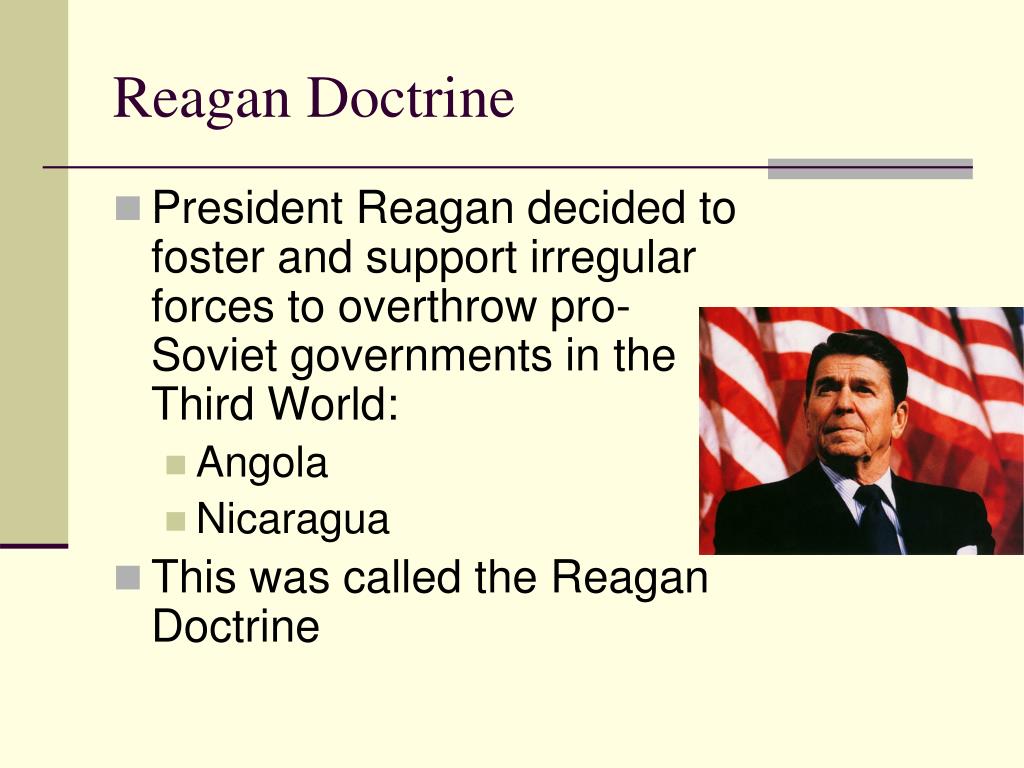
The Reagan Doctrine, like Reagan, has a special phoniness to it in that it wasn’t said by Reagan so much as invented by Time magazine columnist and lying promoter of wars for a generation Charles Krauthammer who wrote that the Reagan Doctrine was overt and unashamed US support for violent revolutions against Communists. Reagan did, of course, act on this in Nicaragua and elsewhere, albeit with secrecy and criminality. The vanishing of the Soviet Union and of its real and imaginary influence around the globe has done nothing to erase this US doctrine of support for violent revolutions. I think the Reagan Doctrine should be “Mistakes were made.”

In 1984 the New York Times identified the Kissinger Corollary, named for Harvard alumnus Henry Kissinger who headed a commission that reported that Marxism-Leninism was a threat, not to Latin American democracy, and not to so-called US “interests,” and not to so-called “national security,” but to the ability of the US to intervene around the world.
The US would need to intervene against communism in Latin America in order to protect the US ability to intervene elsewhere, at least without greater spending on so-called “defense”. Maintenance of the ability to wage wars, and multiple simultaneous wars, anywhere on Earth, has now long been unquestioned Doctrine in Washington. I think the Kissinger Doctrine should be changed as follows: “Only the good die young.”

There seems to be agreement that President Bill Clinton must have a doctrine, but not on what it is. It’s either a sort of broken-windows global policing, where the global cop proactively jumps in to deal with any incipient problem. Or it’s a commitment to fight wars against genocide, as if war were not genocide and genocide not war. Or it’s corporate trade agreements.
The biggest impact on war justifications to have come out of the Clinton era seems to be an argument that there should have been a war in Rwanda to prevent a massacre. This war that didn’t happen but supposedly should have — as if bombing would have been policing, and as if war-making hadn’t created the problem, and as if accepted war-making didn’t continue and do far worse after its moment of unacceptability — this, Rwanda, is one of the more common examples people give when asked for examples of just wars other than World War II.
Developing later out of this line of thinking was the global non-legal and illegal doctrine of “Responsibility to Protect.” This is all very much in the tradition of the Roosevelt Corollary. I think the Bill Clinton doctrine should be “You don’t defeat rightwingers by joining them.”

With the Monroe Doctrine far from dead and buried, US President George W. Bush arrived in 2001 as yet another reviver of it, mainly through harsher rhetoric and clumsier coup attempts. But Bush the Second was given his own doctrine by the US corporate media, which amounted to the doctrine of launching major horrific wars under a variety of evolving excuses with a minor role played by a pretense of spreading democracy.
These wars were outside of Latin America, and — as with the US Civil War, and perhaps World War II — they may have given Latin America a bit of breathing room. Again promoted by Charles Krauthammer, the Bush Doctrine is generally considered to include opposition to international law, and the launching of major wars against distant nations with claims of policing terrorism.
Like every other doctrine, this one is a variation on a steady theme, its seeds discernable in the original Monrovian claim to make various parts of the world into legitimate battlegrounds for US wars. I think it could be shortened to the following two words: “Mission Accomplished.”
Two writers at the Institute for Policy Studies asked US President Barack Obama in 2009 to end the Monroe Doctrine. He did not. But in 2013, purely rhetorically, US Secretary of State John Kerry announced to the OAS that “the era of the Monroe Doctrine is over.” But not the era of doctrines.
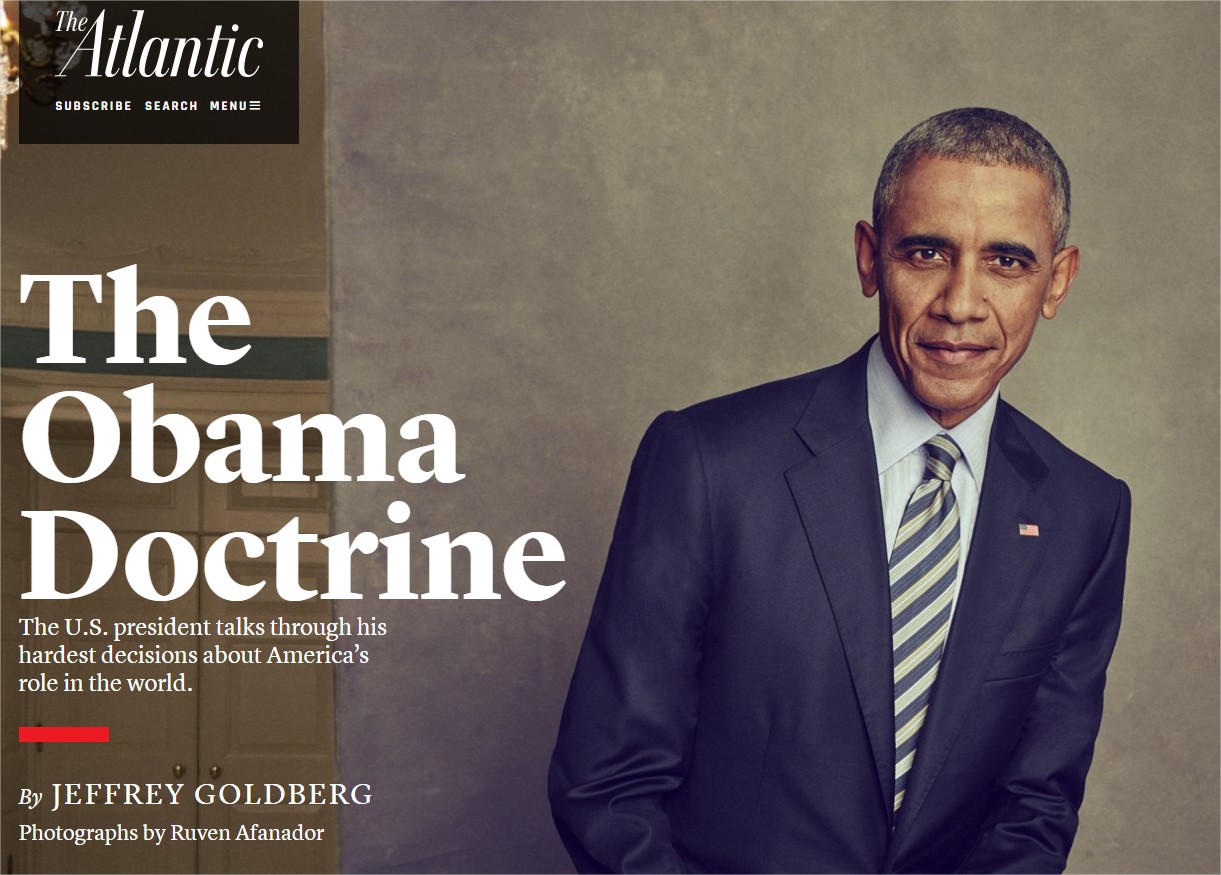
There is corporate media agreement that Obama must have a doctrine, but not on what it is. It is either challenging China as a threat to US domination of the globe, or it is using less militarism than Bush, or it is an undefined middle path between peacemaking and war-making. The Obama-era innovation of wars fought entirely with robotic flying airplanes seems not to have achieved status as a doctrine nominee.
During Obama’s presidency, Vice President Joe Biden played a role in foreign policy, mainly keeping the war on Iraq going as long as possible and the war on Afghanistan going right into the next presidency and beyond (to finally be ended when Biden himself was president), and there was talk back then of a “Biden Doctrine” but not a clear articulation of what it was. Former president Obama recently wrote an articulate sales pitch for the 2023 genocide in Gaza that Biden had not himself come close to. I think the Obama Doctrine should be “Marketing is everything.” My second choice would be “We tortured some folks.”

The next US president to bring the Monroe Doctrine back from a grave it had never even gone near was Donald Trump. The US government’s desire to overthrow Venezuela has been fairly constant since before the Trump presidency and continuing after it. But Trump, more than other presidents, tended to blurt out what he was thinking, including contemplating military action.
CIA Director Mike Pompeo, who publicly admitted that lying was a big part of what he did at the CIA, gave an attack on Venezuela a Monroe Doctrine spin by claiming that problems in Venezuela were caused by Cuba, Russia, Iran, and Hezbollah. Venezuela presented the United Nations with a list of 27 damaging US interventions in Latin America that it considered implementations of the Monroe Doctrine. In the George W. Bush tradition, Trump went in for blatancy and incompetence in adding to that list.
Trump and his cabinet members and advisors openly proclaimed their support for the Monroe Doctrine. But before, during, and after those years, an extreme bipartisan consensus, if not unanimous agreement, prevailed in the US Congress that the top priority in all matters was competing with China — with competition blurring into the possibility of eventual war. So, while it may now be acceptable to reject the Monroe Doctrine, the idea of dismissing concerns over Chinese influence in the Western Hemisphere is almost unthinkable, and for many that’s simply an application of the Monroe Doctrine.
The Trump Doctrine is either brilliant or horrendous, depending on whether you’re speaking with a Trump follower or not, but either way it exists and has something to do with lacking or disregarding knowledge and information in order to treat foreign relations as business deals, openly opposing the United States to the rest of the world, and despising foreigners while claiming wars are stupid, even while keeping the war on Afghanistan going. Mostly, it seems to have a lot to do with the idea that every clown who holds the presidency must have a doctrine.
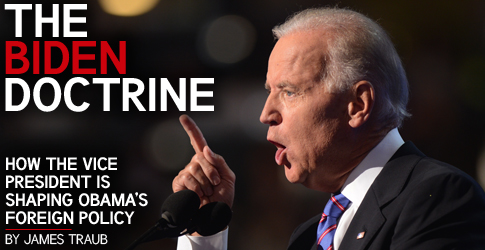
When Joe Biden replaced Donald Trump as US President in 2021, the main change in terms of the Monroe Doctrine was that US officials stopped talking about it. Some of them even began talking about ceasing to blame immigrants and turning instead to assisting Latin American nations in creating places people would be happy to live in and not need to flee. But the main problem for over two centuries was never an inability to think of what the decent thing to do would be. And saying it out loud only gets us so far, if words are not followed by actions.
Unfortunately, the Biden administration is following Trump policy on borders, on Cuba, on militarism, and on continuing to advance the interests of oversized corporations, and not those of most workers, meaning that its efforts, if any, to address the root causes of migration are likely to be counterproductive, and predictably and familiarly so.
Journalists are currently competing to create the Biden Doctrine. The leading contender is probably the claim to be pitting “rules based democracies” against autocracies and law violators, or in other words, opposing Russia and China all over the world. This is a clear continuation of Monroe Doctrine themes, including the theme of hypocrisy, epitomized by sending Israel the weapons to destroy Gaza plus trucks of food for the people being bombed. I would put the Biden Doctrine into three words: Rules-Based Murder.
Events are being planned around the world to bury the Monroe Doctrine on or about its 200th birthday on December 2, 2023, including in Mexico, Colombia, Wisconsin, Virginia, etc. We’ll be posting the events (and you can add your own) and we have all kinds of resources to make it easy to do an event posted on the website at worldbeyondwar.org. The event in Virginia will be a burying of the Monroe Doctrine at Monroe’s house at the University of Virginia, and Monroe himself may make an appearance.
We’re also offering a six-week online course on replacing the Monroe Doctrine. It starts today and runs for six weeks. See worldbeyondwar.org
David Swanson is an author, activist, journalist, and radio host. He is executive director of WorldBeyondWar.org and campaign coordinator for RootsAction.org. Swanson’s books include War Is A Lie. He blogs at DavidSwanson.org and WarIsACrime.org. He hosts Talk World Radio. He is a Nobel Peace Prize nominee, and US Peace Prize recipient. Longer bio and photos and videos here. Follow him on Twitter: @davidcnswanson and FaceBook, and sign up for: Activist alerts. Articles. David Swanson news. World Beyond War news. Charlottesville news.